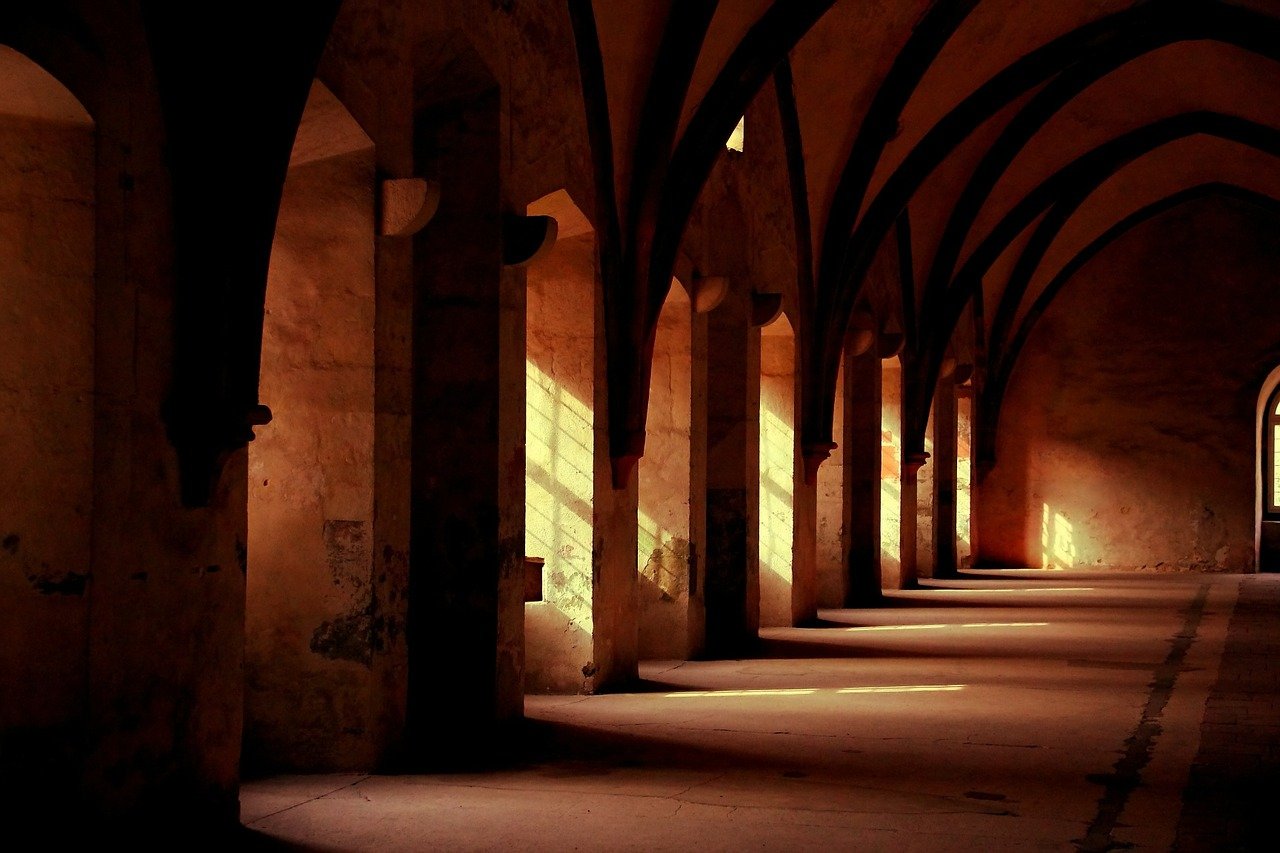We have seen how important contemplative prayer was to the Early Church Fathers Clement and Origen and the Desert Fathers and Mothers and how John Main rediscovered, in the writing of Cassian, meditation, the repetition of a prayer word or phrase as a way into contemplative prayer. But John Main never said that it was the only way- there are other well respected and well-tried ways to enter the silence of contemplative prayer. But why has this way of prayer rooted in the teaching of Jesus and carried by Cassian into the Latin Western Church gone underground from about the 6th century and why has it from then on been considered to be the privileged domain of some saints? Why did it have to be rediscovered and taught by spiritual teachers, like John Main and his successor Laurence Freeman, Thomas Merton, Thomas Keating and Richard Rohr in the 20th century?
The reason for this was that right from the beginning and emphatically so by the 4th century two different strands had appeared in Christianity: one stressed pure faith and literal belief in the agreed scriptures as the only criteria for being a true Christian and the other one felt that this was certainly necessary but not enough; they stressed the importance of going deeper and thus acquiring intuitive knowledge of God through Spirit-led insights and experiences in deep silent prayer. Evagrius and Cassian belonged to the second group, following in the footsteps of Clement and Origen. To them and those Desert Fathers and Mothers like them contemplation was integral to their Christianity. But the Emperor Constantine, having granted freedom of worship to the Christians in 312, clearly favoured the first strand, represented by the largest and best organised group of bishops for his own reasons. He penalised all the other churches that had different interpretations of Jesus and his teaching. On these groups he imposed extra taxes and demanded more public duties from them.
In that way the first strand became the ‘orthodox’ aspect of Christianity. This approach emphasized an unreflective acceptance of a set of beliefs, encouragement of highly moral behaviour and a rejection of any intellectual approach, especially involving any metaphorical interpretation of Scripture – forgetting St Paul’s saying in 2 Corinthians 3:6: “For the letter kills but the Spirit gives life.” Since the ‘orthodox’ believers in later centuries laid the foundations of the Church as it has come to us over the ages, spirituality has ever since then been considered with suspicion, as Laurence Freeman expresses it: “Perhaps this is why most religious institutions… have suspected or tried to control the contemplative force. Whenever they have succeeded religion itself has been damaged because it is contemplation that authenticates the way religion witnesses to truth and revelation.” The result of this is that religion and spirituality are considered to be separate – even nowadays opposed – entities. But of course they are integrally connected: “If religion is the prose of the soul then spirituality is its poetry.” (Chief Rabbi Jonathan Sachs) To separate the two creates an imbalance that has severe repercussion on religion itself: “Religion is a sacred expression of the spiritual, but if the spiritual experience is lacking then the religious form becomes hollow, superficial and self-important.” (John Main)







